“You’re leaving your life behind.”
Billie Sheridan
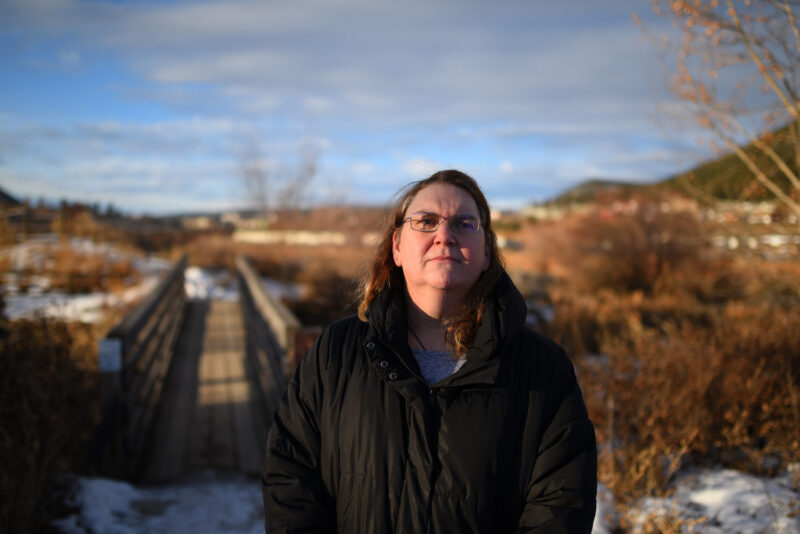
Billie grew up in the suburbs of Burnaby and lived in Haida Gwaii for many years before moving to Williams Lake in 2007 to be near her father and grandmother. She has three sons aged 11, 18, and 25 and one grandchild. Billie’s wife of 26 years, Crystal, is a nurse at a long-term care facility. Together they live in a two-bedroom mobile home in the southern part of the city. When not working at the school district doing classroom support, Billie volunteers as commanding officer of the local army cadets.
She also spends her time doing photography, a hobby that intersects with her love of trains. An avid railfan, Billie enjoys taking photos of the trains that meander through the Cariboo. “If you’re familiar with the TV show, Big Bang Theory, I’m like Sheldon Cooper,” says Billie. “I’ve been a trainiac since I was a kid.”
On July 7, 2017, dry lightning strikes ignited fires in the Williams Lake area. That day was the ninth anniversary of Billie’s grandmother’s passing, a day known in their family as “Chicken Finger Day.” In memorial, Billie had taken her family out for lunch to enjoy her grandmother’s favourite meal.
We’d eaten and were driving to the local Walmart in town to do a bit of shopping. As we were coming up the hill, we noticed a little plume of smoke. We were in Walmart for no more than 15 minutes and we came out and that bellow of smoke probably multiplied fifty fold. A lot of people were standing and looking. You could see the fire. It was huge.
The next morning, it had gotten quite smoky. I live in a gated community and the street’s not very big. It’s a one lane little roadway. You couldn’t see across the street from my house. That’s when my eldest son, who was asthmatic, said that he was finding it hard to breathe at work. He made the conscious effort to get out of Williams Lake. To go north because the air quality in Prince George was a lot better than it was here. He offered to take his brothers with him. They left and I stayed behind at the house with my dog and my daughter in law.
By the ninth, the smoke was getting in the house. It was so hazy that it was almost making it difficult to see inside. My wife’s work made the decision that they were pulling out everybody. They were splitting her patients up to various care homes in Prince George and Vanderhoof. She chose to stay with them in Prince George. That’s when I made the executive decision that I needed to leave. I have a minivan. We loaded it up with pretty much everything that we think that we needed: trinkets, photo albums, government certificates, my marriage certificate, birth certificates.
We got through into Prince George at about 11 o’clock in the morning. Met up with my boys. I’d made plans to stay with family in Vancouver. We went around the fires. We didn’t get into Kamloops until about 10 o’clock at night. That’s when the day caught up to us. Everything just slammed mentally. I looked at my son and I said, “I can’t go on any further, I need to sleep.”
They hadn’t opened shelters yet because when we were there, they hadn’t evac’d Williams Lake. We got a hotel room and they took advantage of us for being refugees. We had explained that we were leaving the wildfires. There could have been compassion. There could have been “Well here, we’ll give you a discount.” No, they decided to up the price. I will never forget that. They soaked us a pretty good amount of money.
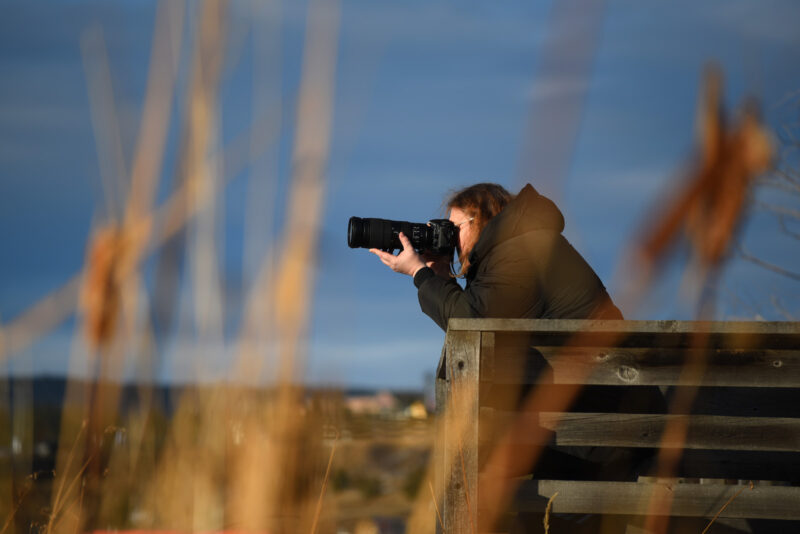
Billie combines her passion for trains and photography by capturing the scenic Cariboo trains in her spare time. (CDP Photo/Philip McLachlan)
When we got to Vancouver, we could smell fresh air. You could smell the cedar trees. We could smell the ocean. It was nice. I stayed with family in their home for about three and a half weeks. I am thankful. But it didn’t feel like home. You have these idiosyncrasies that you do at home. There are certain things that you can’t do, even if you’re staying with close family, that you would do at home. There was always this sense of you are on alert. It was very stressful. Having to keep composure and making sure I got my kids to safety. Having to be a solid rock for the kids. It was psychologically gruelling.
We didn’t anticipate the length of the time. We were hoping that this was only going to last a few days and we’d be gone. We remember being glued to the news. First thing in the morning and last thing in the evening, just to get any glimpse of what was going on, when would you expect to return. A lot of times the mayor was on the news telling us the firefighters are out there working but not telling us what’s going on. A lot of times, they would just tell us that we’re hoping to get people home as soon as possible.
My kids weren’t happy. It was very cramped. Everybody was getting snippy with everybody else. We got to the point where we were asked to go. By that time they had opened up Williams Lake for residents to slowly return. So my eldest took our family dog and his partner and they went back home to Williams Lake. Unfortunately, my two younger kids and I couldn’t return because of medical reasons. My partner was doing an afternoon shift and the gears they put in for her hip replacement broke inside her. They had to medevac her to Vancouver. So on top of being the parental figure, I now had to be running between where we were staying to Vancouver General and back again, back and forth.
I was fortunate enough to find a place in New Westminster that we could stay at. We were quite lucky because a lot of people were having to report to shelters. Some of the places were quite cramped. It was an eye opener to see the rows upon rows of beds in the hockey arena. There were cops coming in. Some people were getting sick being there. A lot of people just found jobs and found accommodation and settled in Kamloops or the Lower Mainland or Prince George. There was a lot of people that normally wouldn’t have left Williams Lake that never came back.
We stayed down for another two and a half weeks. It felt like a long drive home. I remember coming in and seeing signs on the side of the road thanking the first responders, thanking the military, thanking the people that stayed behind to fight the fire. I remember wailing on the horn and we were all cheering. I remember coming around the corner from 150 Mile and seeing the town and the sigh of relief. I can tell you that, oh my god, to sleep in your own bed after that length of time To have your own sheets, your own pillow. You take it for granted. I remember going for a drive. I went for a drive just to see pictures and to see things. It was surreal because there was still smoke in the air.
It shouldn’t have happened. We had beetle-killed wood sitting in the forest. If government would have listened to experts saying that we need to get this wood out of the forests, I don’t think it would have happened to the scale that it did. It didn’t make downtown but it did burn down quite a number of houses. It torched homes, burnt buildings. It even shut down the old BC rail line. And it could have been a lot worse if the fire departments in 150 Mile, in Wildwood, didn’t act as fast as they did.
I feel we all have a part to be mindful of what’s going on. Everybody has a part to do in the world. And especially here at BC. The smallest act of raking up your lawn clippings helps. Having plans ready in advance in case disaster hits. Have things set up at the evac centre when we get there. Because for somebody that’s lived through it, it’s hard. You’re leaving your life behind. You’re uncertain if you’re going to be homeless. You’re uncertain if you’re going to come back home. Be mindful and ready that when people come in, they’re not their best self. I think Williams Lake knows that now. If this ever happens again, they are prepped and ready to go at a moment’s notice. We all need to do our part.
This story was originally published in The Tyee, on May 25, 2023
Related Stories
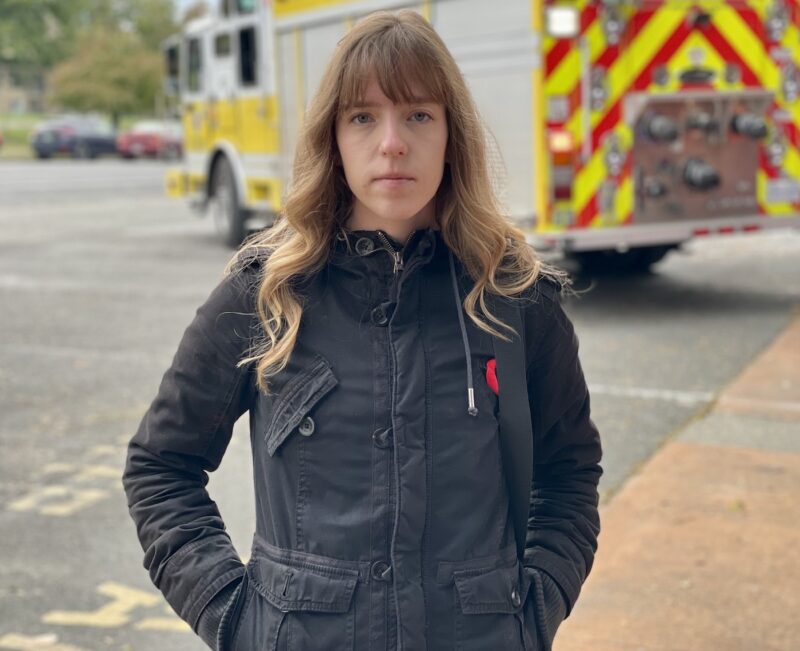
Kaitlyn Nightingale, Summerland, Canada
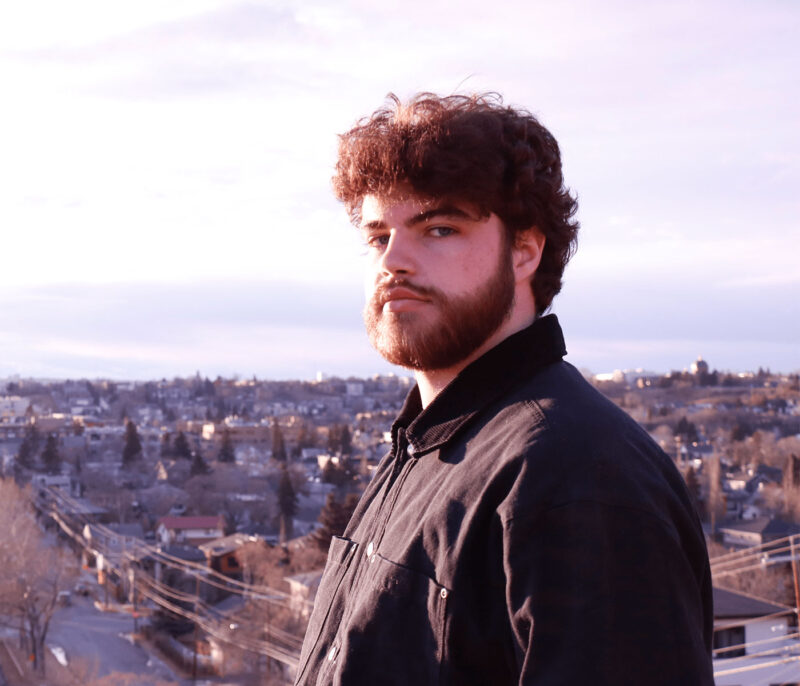
Gage Smith, Chilliwack, Canada
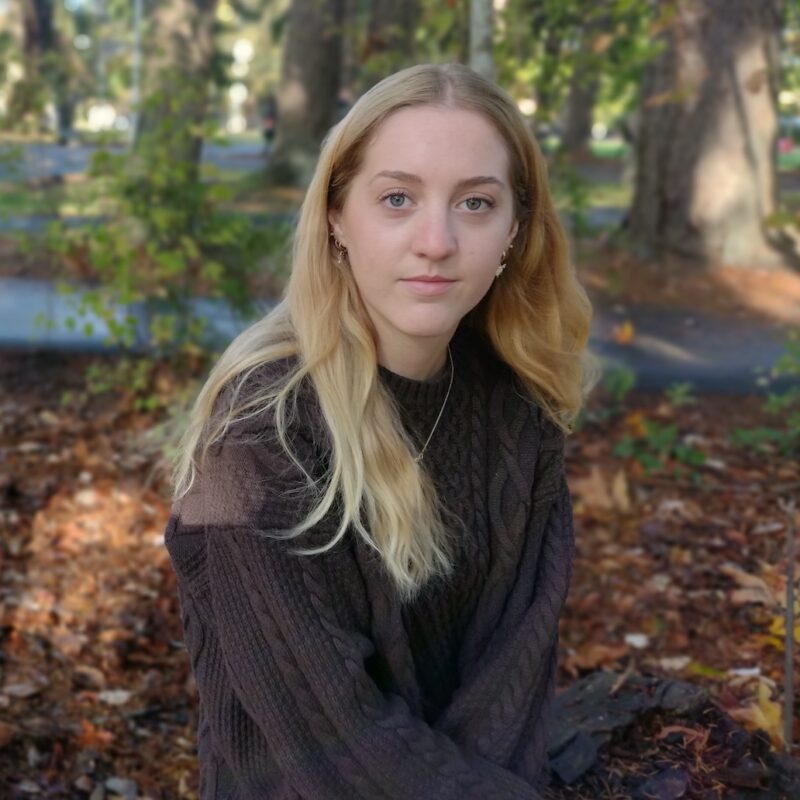
Hannah Seaton, North Vancouver, Canada